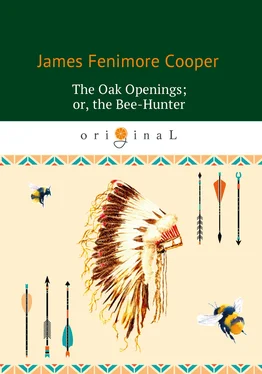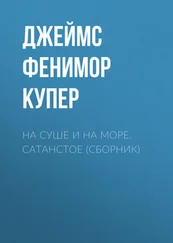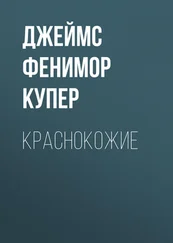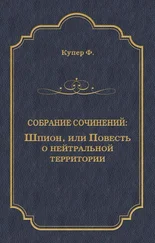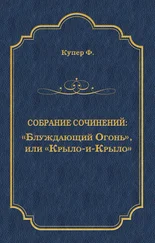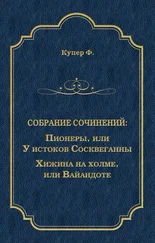At length le Bourdon found a bee to his mind, and watching the moment when the animal was sipping sweets from a head of white clover, he cautiously placed his blurred and green-looking tumbler over it, and made it his prisoner. The moment the bee found itself encircled with the glass, it took wing and attempted to rise. This carried it to the upper part of its prison, when Ben carefully introduced the unoccupied hand beneath the glass, and returned to the stump. Here he set the tumbler down on the platter in a way to bring the piece of honeycomb within its circle.
So much done successfully, and with very little trouble, Buzzing Ben examined his captive for a moment, to make sure that all was right. Then he took off his cap and placed it over tumbler, platter, honeycomb, and bee. He now waited half a minute, when cautiously raising the cap again, it was seen that the bee, the moment a darkness like that of its hive came over it, had lighted on the comb, and commenced filling itself with the honey. When Ben took away the cap altogether, the head and half of the body of the bee was in one of the cells, its whole attention being bestowed on this unlooked-for hoard of treasure. As this was just what its captor wished, he considered that part of his work accomplished. It now became apparent why a glass was used to take the bee, instead of a vessel of wood or of bark. Transparency was necessary in order to watch the movements of the captive, as darkness was necessary in order to induce it to cease its efforts to escape, and to settle on the comb.
As the bee was now intently occupied in filling itself, Buzzing Ben, or le Bourdon, did not hesitate about removing the glass. He even ventured to look around him, and to make another captive, which he placed over the comb, and managed as he had done with the first. In a minute, the second bee was also buried in a cell, and the glass was again removed. Le Bourdon now signed for his companions to draw near.
“There they are, hard at work with the honey,” he said, speaking in English, and pointing at the bees. “Little do they think, as they undermine that comb, how near they are to the undermining of their own hive! But so it is with us all! When we think we are in the highest prosperity we may be nearest to a fall, and when we are poorest and hum-blest, we may be about to be exalted. I often think of these things, out here in the wilderness, when I’m alone, and my thoughts are acTYVE.”
Ben used a very pure English, when his condition in life is remembered; but now and then, he encountered a word which pretty plainly proved he was not exactly a scholar. A false emphasis has sometimes an influence on a man’s fortune, when one lives in the world; but it mattered little to one like Buzzing Ben, who seldom saw more than half a dozen human faces in the course of a whole summer’s hunting. We remember an Englishman, however, who would never concede talents to Burr, because the latter said, a L’AmEricaine, EurOpean, instead of EuropEan.
“How hive in danger?” demanded Elksfoot, who was very much of a matter-of-fact person. “No see him, no hear him – else get some honey.”
“Honey you can have for asking, for I’ve plenty of it already in my cabin, though it’s somewhat ‘arly in the season to begin to break in upon the store. In general, the bee-hunters keep back till August, for they think it better to commence work when the creatures” – this word Ben pronounced as accurately as if brought up at St. James’s, making it neither “creatur’” nor “creatOOre” – “to commence work when the creatures have had time to fill up, after winter’s feed. But I like the old stock, and, what is more, I feel satisfied this is not to be a common summer, and so I thought I would make an early start.”
As Ben said this, he glanced his eyes at Pigeonswing, who returned the look in a way to prove there was already a secret intelligence between them, though neither had ever seen the other an hour before.
“Waal!” exclaimed Gershom, “this is cur’ous, I’ll allow THAT; yes, it’s cur’ous – but we’ve got an article at Whiskey Centre that’ll put the sweetest honey bee ever suck’d, altogether out o’ countenance!”
“An article of which you suck your share, I’ll answer for it, judging by the sign you carry between the windows of your face,” returned Ben, laughing; “but hush, men, hush. That first bee is filled, and begins to think of home. He’ll soon be off for HONEY Centre, and I must keep my eye on him. Now, stand a little aside, friends, and give me room for my craft.”
The men complied, and le Bourdon was now all intense attention to his business. The bee first taken had, indeed, filled itself to satiety, and at first seemed to be too heavy to rise on the wing. After a few moments of preparation, however, up it went, circling around the spot, as if uncertain what course to take. The eye of Ben never left it, and when the insect darted off, as it soon did, in an air-line, he saw it for fifty yards after the others had lost sight of it. Ben took the range, and was silent fully a minute while he did so.
“That bee may have lighted in the corner of yonder swamp,” he said, pointing, as he spoke, to a bit of low land that sustained a growth of much larger trees than those which grew in the “opening,” “or it has crossed the point of the wood, and struck across the prairie beyond, and made for a bit of thick forest that is to be found about three miles further. In the last case, I shall have my trouble for nothing.”
“What t’other do?” demanded Elksfoot, with very obvious curiosity.
“Sure enough; the other gentleman must be nearly ready for a start, and we’ll see what road HE travels. ‘Tis always an assistance to a bee-hunter to get one creature fairly off, as it helps him to line the next with greater sartainty.”
Ben WOULD say acTYVE, and SARtain, though he was above saying creatoore, or creatur’. This is the difference between a Pennsylvanian and a Yankee. We shall not stop, however, to note all these little peculiarities in these individuals, but use the proper or the peculiar dialect, as may happen to be most convenient to ourselves.
But there was no time for disquisition, the second bee being now ready for a start. Like his companion, this insect rose and encircled the stump several times, ere it darted away toward its hive, in an air-line. So small was the object, and so rapid its movement, that no one but the bee-hunter saw the animal after it had begun its journey in earnest. To HIS disappointment, instead of flying in the same direction as the bee first taken, this little fellow went buzzing off fairly at a right angle! It was consequently clear that there were two hives, and that they lay in very different directions.
Without wasting his time in useless talk, le Bourdon now caught another bee, which was subjected to the same process as those first taken. When this creature had filled it-self, it rose, circled the stump as usual, as if to note the spot for a second visit, and darted away, directly in a line with the bee first taken. Ben noted its flight most accurately, and had his eye on it, until it was quite a hundred yards from the stump. This he was enabled to do, by means of a quick sight and long practice.
“We’ll move our quarters, friends,” said Buzzing Ben, goodhumoredly, as soon as satisfied with this last observation, and gathering together his traps for a start. “I must angle for that hive, and I fear it will turn out to be across the prairie, and quite beyond my reach for to-day.”
The prairie alluded to was one of those small natural meadows, or pastures, that are to be found in Michigan, and may have contained four or five thousand acres of open land. The heavy timber of the swamp mentioned, jutted into it, and the point to be determined was, to ascertain whether the bees had flown OVER these trees, toward which they had certainly gone in an air-line, or whether they had found their hive among them. In order to settle this material question, a new process was necessary.
Читать дальше
